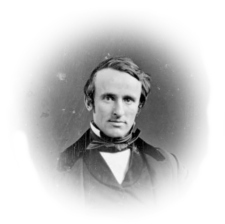June 10, Monday morning, after a few hours’ rest at the Goodale or Capitol House, we went over to the governor’s office and learned that the governor had made up a regiment composed of companies chiefly from the extreme northern and northeastern part of the East [State], the field officers being all from Cincinnati, to be the Twenty-third Regiment Ohio Volunteer Infantry, for the service of the United States during the war. This regiment was to be organized under General Order No. 15, issued by the adjutant-general of the United States, May 4, 1861, and was the first regiment in Ohio in which the regiment did not elect its own field officers. We feared there would be some difficulty in reconciling the men and officers to officers–strangers–not of their own selection. . . .
Several of these companies had been in camp in Camp Taylor, near Cleveland, together, and wished to remain and act together. All the captains came into the governor’s office, soon after we entered, in a state of some excitement, or at least some feeling, at finding themselves placed under strangers from a distant part of the State. We were introduced to them. Colonel Rosecrans unfortunately was not present, having not yet arrived from some military service at Washington. The governor explained to Matthews and myself that the field officers of the Twenty-third were fixed, that we were the Twenty-third Regiment, and that those captains could go into it or not as they saw fit. A little acquaintance satisfied us that our captains were not disposed to be unreasonable, that their feeling was a natural one under the circumstances, and that all ill feeling would disappear if we showed the disposition and ability to perform our duties. Captain Beatty, however, would not be content. He had been a senator in the Legislature, was fifty-five or sixty years old and not disposed to go under young men.
We took a hack out to Camp Jackson, ¹ four miles west of Columbus on the National Road. Several companies were mustered into service by Captains Simpson and Robinson the same day. Colonel E. A. King, of Dayton, was, under state authority, in command of all the soldiers, some twenty-five hundred in number, not mustered into service. As rapidly as they were mustered in, they passed under Colonel Matthews, as the ranking field officer in United States service. Luckily, Captain Beatty was not ready for the mustering officer and we succeeded in getting Captain Zimmerman’s fine company in his place. Ditto Captain Howard in place of Captain Weller.
_______
¹ Name changed a few days later to Camp Chase.
